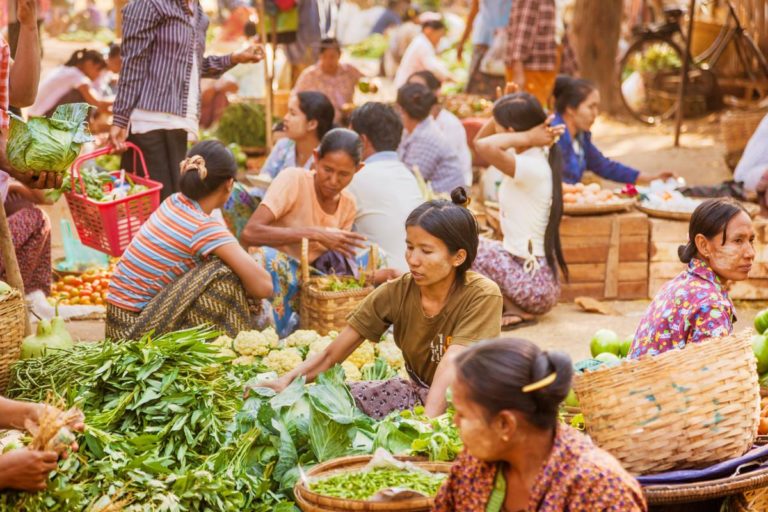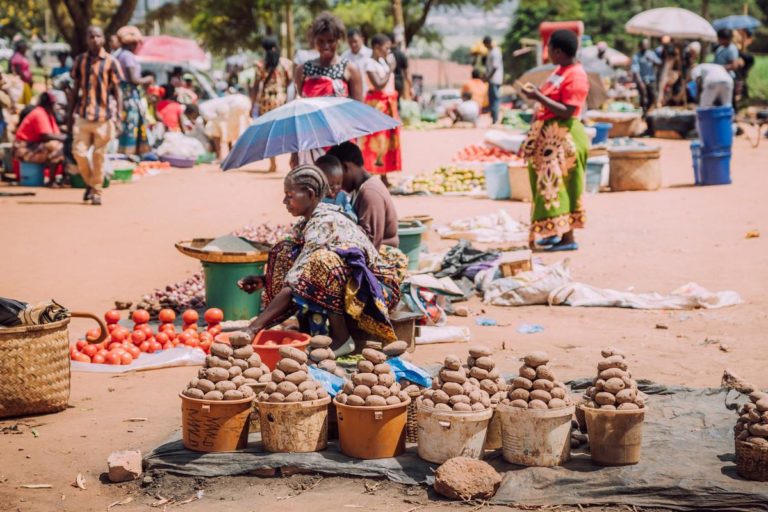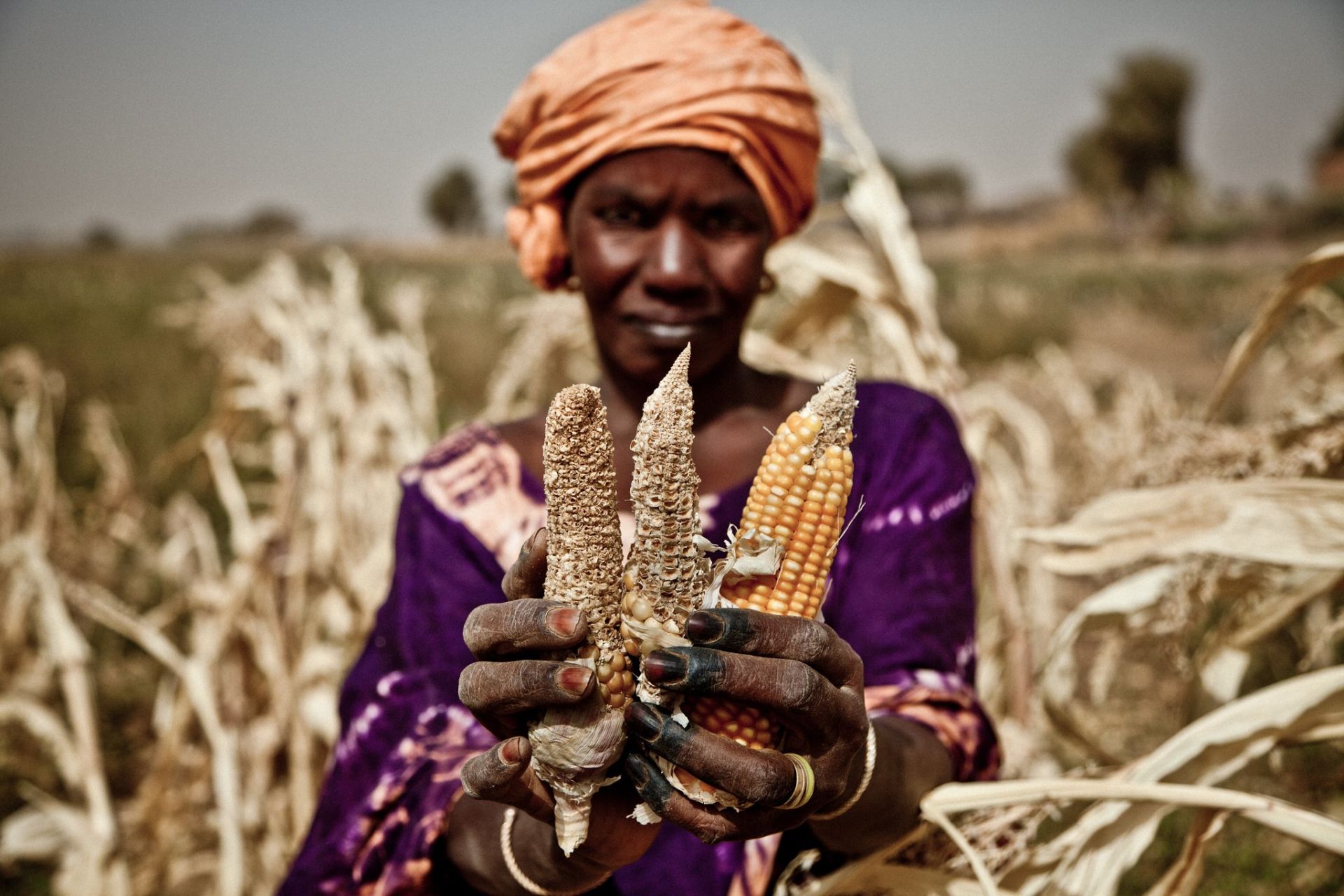The Food and Agriculture Organization of the United Nations (FAO) just announced that global food prices have hit their highest level in a decade, jumping 40% in May compared to the same period last year. The news comes on the heels of a devastating COVID-19 hunger crisis that the FAO projects will increase the number of hungry people by up to 130 million, taking us back to hunger levels not seen in half a century.
The main causes are increased demand for grain and soybeans in China, severe drought in Brazil, and growing demand for vegetable oils for biofuels and biodiesel. The massive rise in food prices will hit food importers and low-income countries the hardest, as people struggle to pay to meet their basic food needs and countries fight to keep prices affordable. We have been here before.
We have been here before. The last times we saw prices spike this high were during the food price crises of 2008/2009 and 2010/2011. Some food-exporting countries responded by restricting exports of food staples. Foreign investors responded by buying up large tracts of farmland to secure additional means of production for their domestic economies. The financial sector responded through further speculation on commodity markets. It created the perfect storm for a dramatic rise in global hunger.
But this time can be different. This time we know what needs to happen.

Change global rules on food trade
Our recent report on shocks to the food system lays out an ambitious agenda for trade policy reform to help governments respond to shocks like this price spike. Governments at the World Trade Organization (WTO) should agree to ban export restrictions on all food staples. At a minimum, they should conclude negotiations to exempt non-commercial humanitarian food aid by the World Food Programme from export restrictions or prohibitions.
Related Articles: U.S. Food System Needs Significant Changes to End Hunger | In the Face of COVID-19, Farmers in Ecuador Innovate a Whole New Food System
There is also a pressing need to reform rules on domestic support to farmers to allow all countries to provide support to their farmer sector without harming producers in other countries (International Institute For Sustainable Development [IISD] & International Food Policy Research Institute [IFPRI], 2020). This would help improve the stability and predictability of food markets, as would an agreement to cut unusually high tariffs on key farm goods in major importing countries.
Double public investment in agriculture
An additional USD 33 billion per year of public investment is needed to end hunger and double the incomes of the poorest while at the same time maintaining greenhouse gas emissions in agriculture to the commitments made in the Paris climate agreement. This is the key finding from the work of 86 researchers from 23 countries and 53 organizations led by Cornell University, IFPRI, and IISD.
In this study, published in Nature Research, we found that in the next decade governments must reverse the chronic under-investment in agriculture, particularly in Africa, and provide an additional USD 33 billion in public spending per year until 2030.
The additional money should be spent on the farm, with a focus on extension services, irrigation, finance, infrastructure, research and development (R&D), and production subsidies; on food markets, with a focus on infrastructure, technical assistance for small and medium-sized enterprises, storage, sustainable energy, and refrigeration; and to empower the excluded, with a focus on strengthening farmer organizations, education for rural young people, and social protection. Social protection, in particular, needs to be ramped up urgently to ensure people’s access to sufficient food.
Large-scale agribusiness investment must be responsible and inclusive
One of the key drivers of the current spike in prices is the growing demand for vegetable oils for biofuels and biodiesel. This means more demand for palm oil and other oil that contribute to increased commercial pressures on land and increase the risk of land grabbing.
In the past decade, a number of countries have improved their laws, regulations, and contracts governing foreign private sector investment, including Argentina, Burkina Faso, Chile, Colombia, Lao PDR, Mexico, Peru, Mali, Sierra Leone, and Sri Lanka. This has contributed to more responsible and sustainable outcomes from investment in agriculture.

The ongoing reform of legal and policy frameworks must continue to be driven by national priorities and local needs, and informed by international norms, guidelines, and best practices. Governments should incentivize business models that require foreign investment to be integrated into local, national, and regional economies and that help diversify production, distribution, and consumption systems to expand markets and opportunities.
A perfect storm is on the horizon. But with the knowledge and evidence we have about available, effective solutions, we can weather this storm and emerge in a hunger-free, more equal global society that protects our fragile climate.
— —
About the author: Carin Smaller is Director, Agriculture, Trade & Investment, for the Economic Law and Policy program. She advises governments and parliamentarians on law and policy issues related to foreign investment and trade in agriculture.
Editor’s Note: The opinions expressed here by Impakter.com columnists are their own, not those of Impakter.com.— In the Featured Photo: A member of the Diawoud community women’s cooperative, showing how the maize ears have dried in a drought. Due to lack of rain and rising food prices, people living in the Mauritanian Sahel were threatened by severe food insecurity in 2012. Featured Photo Credit: Pablo Tosco / Oxfam











